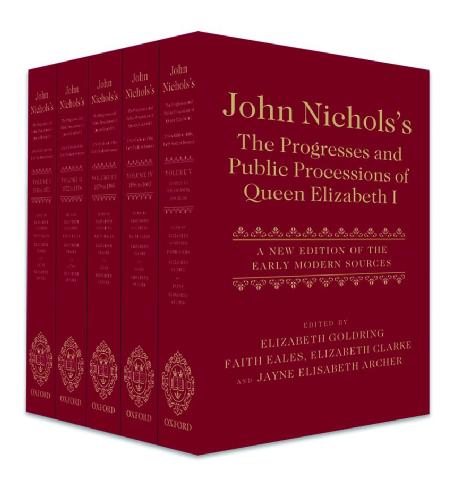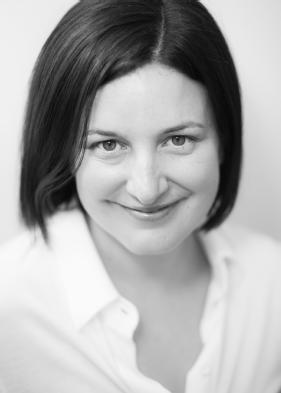New facts about Queen Elizabeth I revealed like never before in award winning historical volumes
 Several hundred manuscripts and early printed texts have been transcribed afresh by over 40 scholars based at the at the University of Warwick’s Centre for the Study of the Renaissance to produce a series of award winning books entitled, John Nichols’s The Progresses and Public Processions of Queen Elizabeth I: A New Edition of the Early Modern Sources.
Several hundred manuscripts and early printed texts have been transcribed afresh by over 40 scholars based at the at the University of Warwick’s Centre for the Study of the Renaissance to produce a series of award winning books entitled, John Nichols’s The Progresses and Public Processions of Queen Elizabeth I: A New Edition of the Early Modern Sources.
The new editions include first-hand accounts of the lavish festivities staged for the Queen, court correspondence, financial accounts and even menu plans. This work by the Nichols Project has been awarded the international 2015 Modern Language Association (MLA) Prize for a Scholarly Edition.
Fifteen years in the making, this publication – for which Dr Elizabeth Goldring (Associate Fellow, Centre for the Study of the Renaissance), Dr Faith Eales (formerly Associate Fellow, Centre for the Study of the Renaissance), Professor Elizabeth Clarke (English), and Dr Jayne Elisabeth Archer (formerly Associate Fellow, Centre for the Study of the Renaissance) served as General Editors – has been hailed by critics as ‘an outstanding edition’ (The English Historical Review) and an ‘astounding scholarly accomplishment’ (Renaissance Quarterly). It has also been selected by the Times Literary Supplement as one of its ‘Books of the Year’ for 2015.
Based at the University of Warwick’s Centre for the Study of the Renaissance (and directed, since 2003, by Professor Clarke), the Nichols Project has brought together more than forty scholars – many of them trained, or based, at Warwick – to produce a new, old-spelling edition of the key early modern texts printed by Nichols in his two editions of The Progresses, and Public Processions, of Queen Elizabeth (1788-1821; 1823).
In its award citation, the MLA praised the publication, and its General Editors,
"In the eighteenth century, John Nichols set out to document the splendid ceremonies of the Elizabethan age. With John Nichols’s The Progresses and Public Processions of Queen Elizabeth I: A New Edition of the Early Modern Sources, Elizabeth Goldring, Faith Eales, Elizabeth Clarke, and Jayne Elisabeth Archer set themselves an even more daunting task – to reedit the sixteenth-century sources along with Nichols’s own work. They have succeeded admirably, coordinating forty contributors to a consistently high standard of erudition, precision, and transparency. The volumes feature everything the scholar could wish for and more, from an intelligent critical apparatus to more than one hundred beautifully instructive illustrations. This edition allows us to view Elizabethan court culture with fresh eyes and will give impetus to much new research. These volumes will be the standard reference for the sixteenth-century English court for many years to come. No scholar of the Elizabethan age can “progress” without it."
The MLA Prize for a Scholarly Edition is the second major international book prize for John Nichols’s The Progresses and Public Processions of Queen Elizabeth I: A New Edition of the Early Modern Sources. In October, Dr Goldring, Dr Eales, Professor Clarke, and Dr Archer were awarded the 2015 Roland H. Bainton Book Prize for Reference, presented annually by the Sixteenth Century Society to the most distinguished work of reference published in the preceding year, in English, and dealing with the historical period 1450-1660.
John Nichols’s The Progresses and Public Processions of Queen Elizabeth I: A New Edition of the Early Modern Sources is the primary output of the John Nichols Research Project, named in honour of the printer, editor, and antiquarian John Nichols (1745-1826), whose late eighteenth- and early nineteenth-century publications pertaining to Elizabethan court culture have been an invaluable research tool for generations of scholars.
Although Nichols’s late eighteenth- and early nineteenth-century publications provided the point of departure for this endeavour, John Nichols’s The Progresses and Public Processions of Queen Elizabeth I: A New Edition of the Early Modern Sources goes far beyond Nichols’s original volumes in both size and scope. The new edition runs to five, over-sized volumes and more than 2.5 million words – roughly the equivalent of twenty-five standard-sized monographs.

Dr Elizabeth Goldring, Associate Fellow of the Centre for the Study of the Renaissance and lead General Editor, said on learning of the MLA Prize for a Scholarly Edition:
"Much sets this new edition of the Elizabethan Progresses apart from John Nichols’s late eighteenth- and early nineteenth-century ones. But the spirit of scholarly collaboration that was a hallmark of Nichols’s own work also has proved to be a defining characteristic of John Nichols’s The Progresses and Public Processions of Queen Elizabeth I: A New Edition of the Early Modern Sources. More than forty scholars from around the world and across the disciplines contributed to this five-volume edition as section editors and translators, together with numerous other academics who – though not contributors per se – nonetheless gave generously of their time and expertise. It has been a great privilege to have been part of the Nichols Project and it is a tremendous honour to see the project come to an end on such a high note, by winning the MLA Prize for a Scholarly Edition."
Additional information:
The MLA was founded in the United States in 1883 to promote the study and teaching of modern languages and literatures. Today, it has over 26,000 members in 100 countries and is one of the world’s largest, and most esteemed, academic associations. At the organisation’s annual convention – held each January in a different city – members share scholarly findings and pedagogical techniques, discuss trends in the academy, and, via the prestigious MLA prizes (presented in a number of different categories), recognise outstanding new publications in the field of modern languages and literatures. All prizes are awarded under the auspices of the MLA’s Committee on Honours and Awards, which appoints the members of the selection committee for each prize and determines procedures, deadlines, and criteria for eligibility.
The MLA Prize for a Scholarly Edition is awarded biennially to the most distinguished critical edition published during the preceding two years. According to the MLA’s Committee on Honours and Awards, ‘to qualify for the award, an edition should be based on an examination of all available relevant textual sources; the source texts and the edited text’s deviations from them should be fully described; the edition should employ editorial principles appropriate to the materials edited, and those principles should be clearly articulated in the volume; the text should be accompanied by appropriate textual and other historical contextual information; the edition should exhibit the highest standards of accuracy in the presentation of its text and apparatus; and the text and apparatus should be presented as accessibly and elegantly as possible.’ Works written in any modern language are eligible for consideration, as are works dealing with texts of any historical period.
The 2015 MLA Prize for a Scholarly Edition will be formally presented at an awards ceremony on Saturday, 9th January 2016, the final night of the 131st annual MLA convention, to be held in Austin, Texas.
Alex Buxton
Communications Manager
Tel: 02476 150423
Mob: 07876 218166
a.buxton.1@warwick.ac.uk
